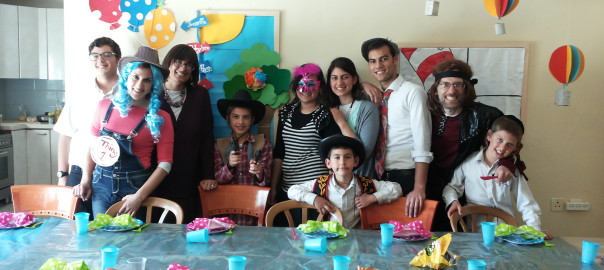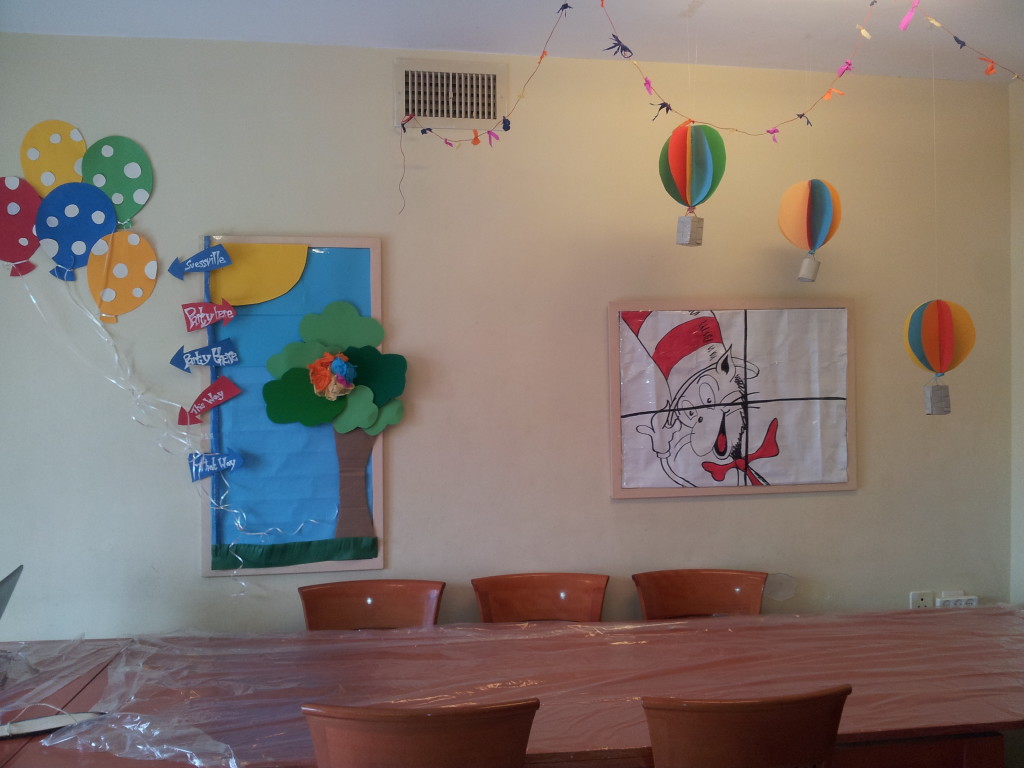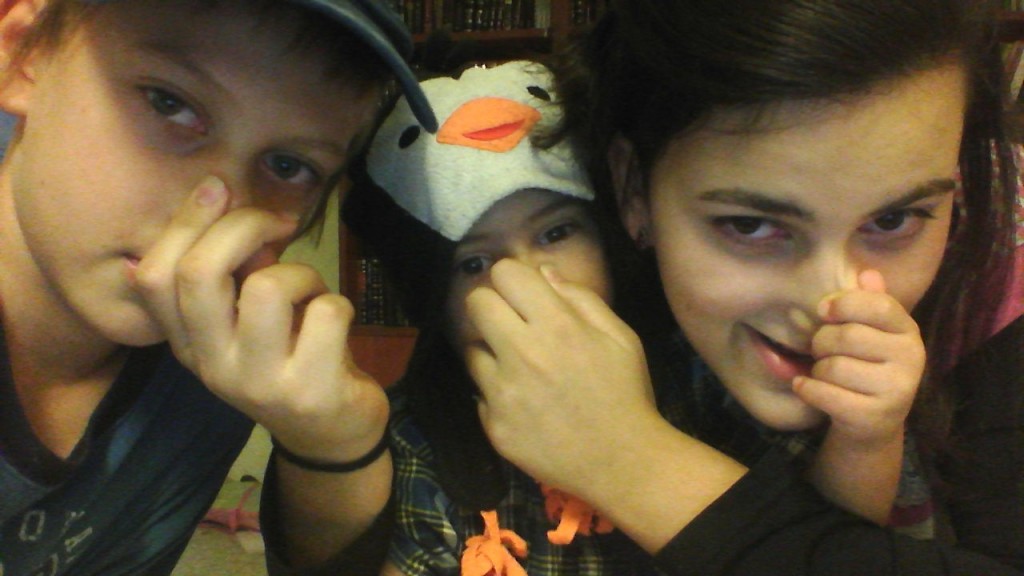Purim is a few days behind us and it was wonderful!
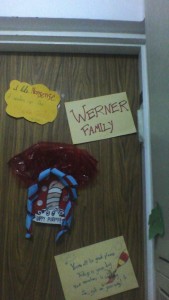
The day before Purim I was feeling quite pressured by my to-do list – it felt a mile long. It was a mile long. And it was obvious to me that I couldn’t do what needed to be done by myself.
Getting it all done meant pulling everyone together to work as a team, and our family team was amazing! This is not something that happens by itself. At busy times it can feel like there’s no time to get everyone galvanized and organized because it means slowing down.
But taking that time to slow down and make a plan with your family means once you’re ready to take action, you can zoom forward like a turbo-charged sports car rather than rushing, stressing and resenting those around you for not doing enough.
We had decorating going on, we had cooking going on, we had cleaning going on, we had mishloach manos preparation going on, and we had shopping going on! All at the same time! Not only did the Werner team get everything done, but we had fun connecting while doing it!
Dd21 did a wonderful job planning a double theme of Dr. Seuss and cowboys, voted on by the younger boys.
The Seuss wall
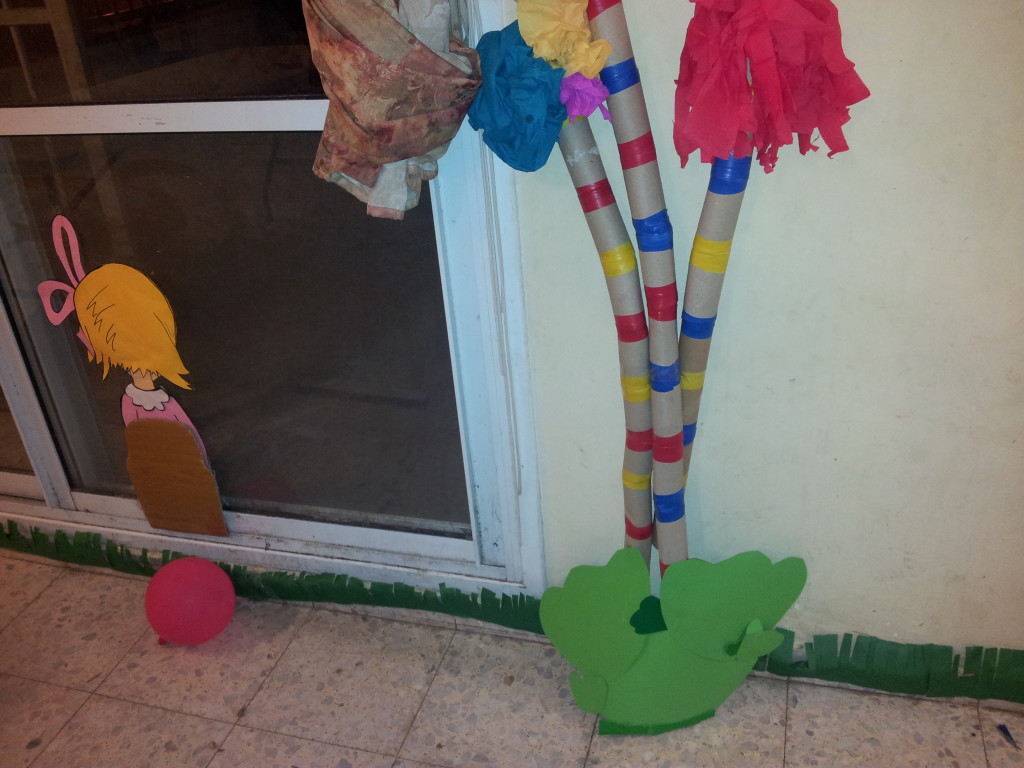
On the opposite wall, the cowboy theme:
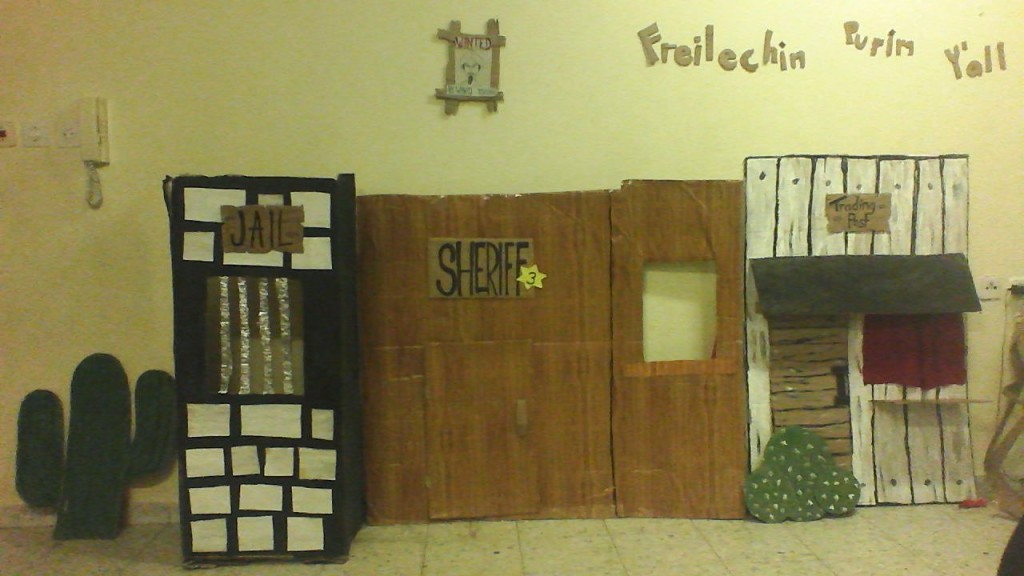
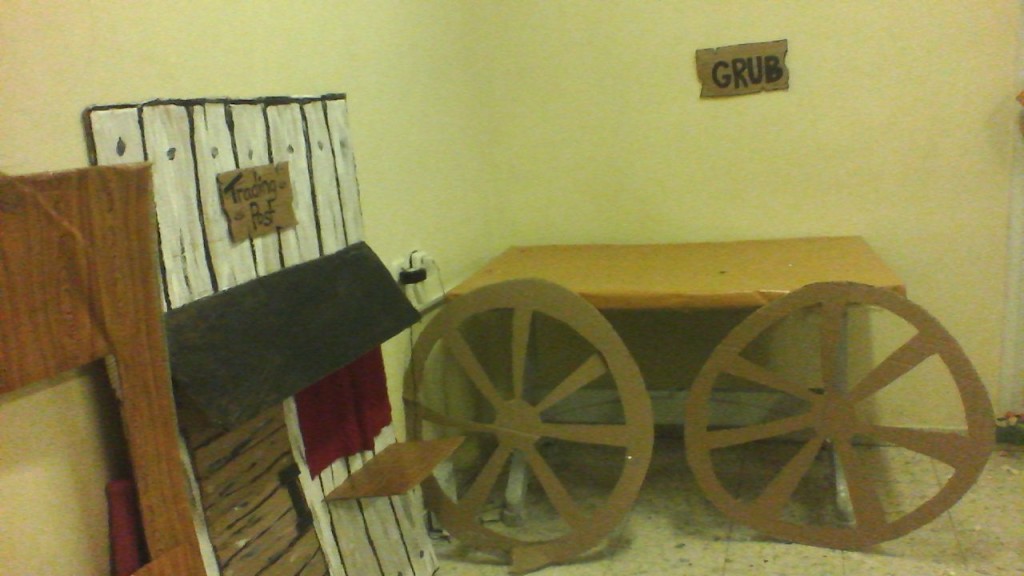
A neighbor not only asked if she could bring her children who were all dressed as cowboys to do a photo shoot using dd’s decorations as props, she later brought her guests to show them our decorations, too!
Here’s one of our cowboys.
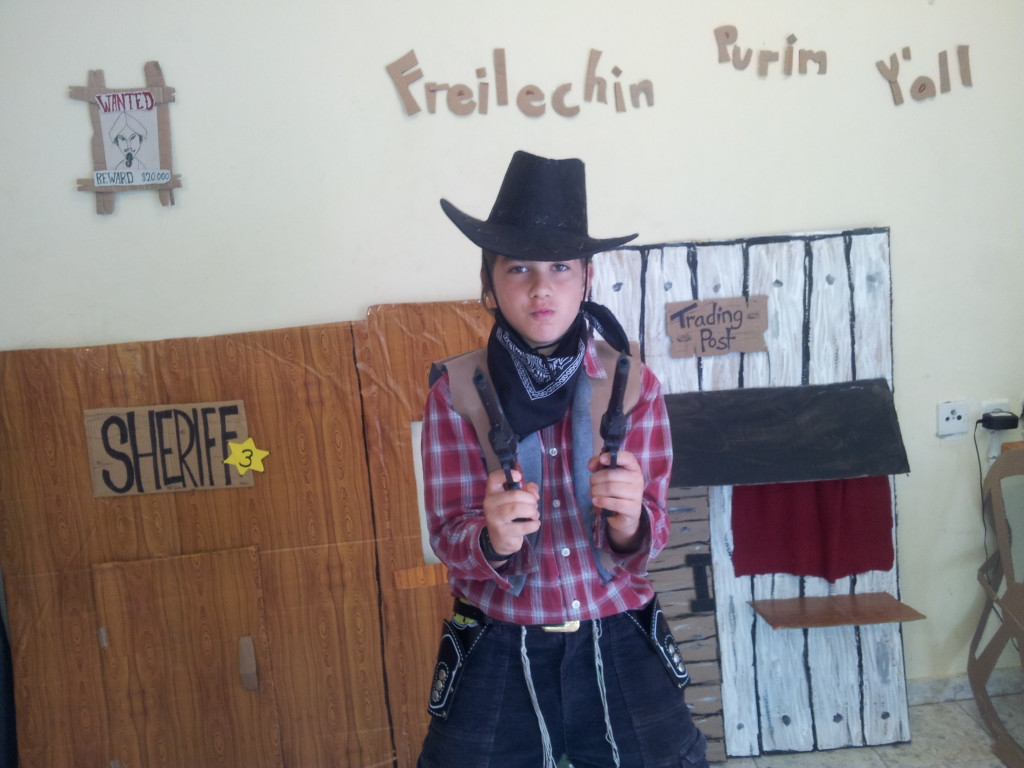
We had twenty four people for our Purim meal. One table was Seuss themed.
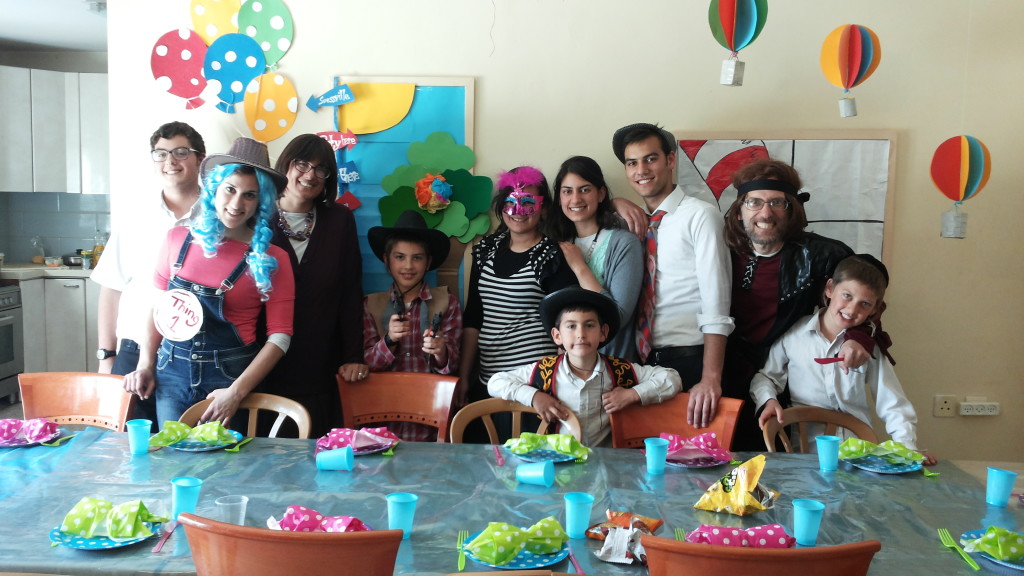
The second table had the cowboy theme.
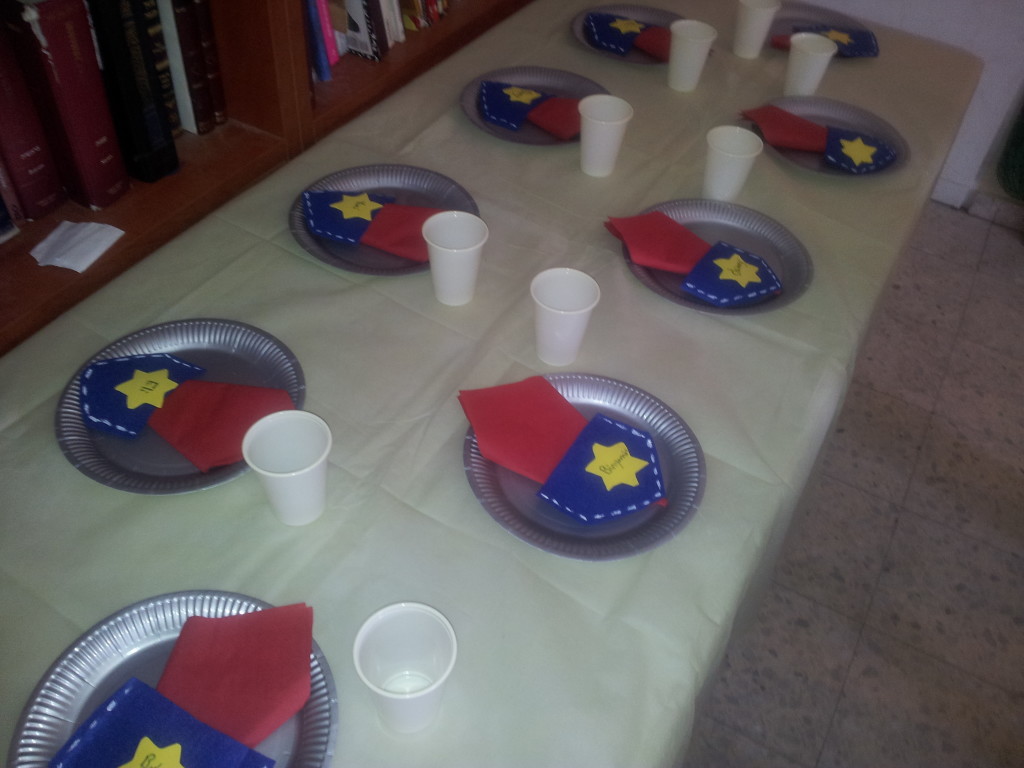
Yirmi was napping when we took the family photo above, but he woke up with plenty of time to participate. I’ll make up for leaving him out of that photo by sharing two photos of him with guests. 🙂
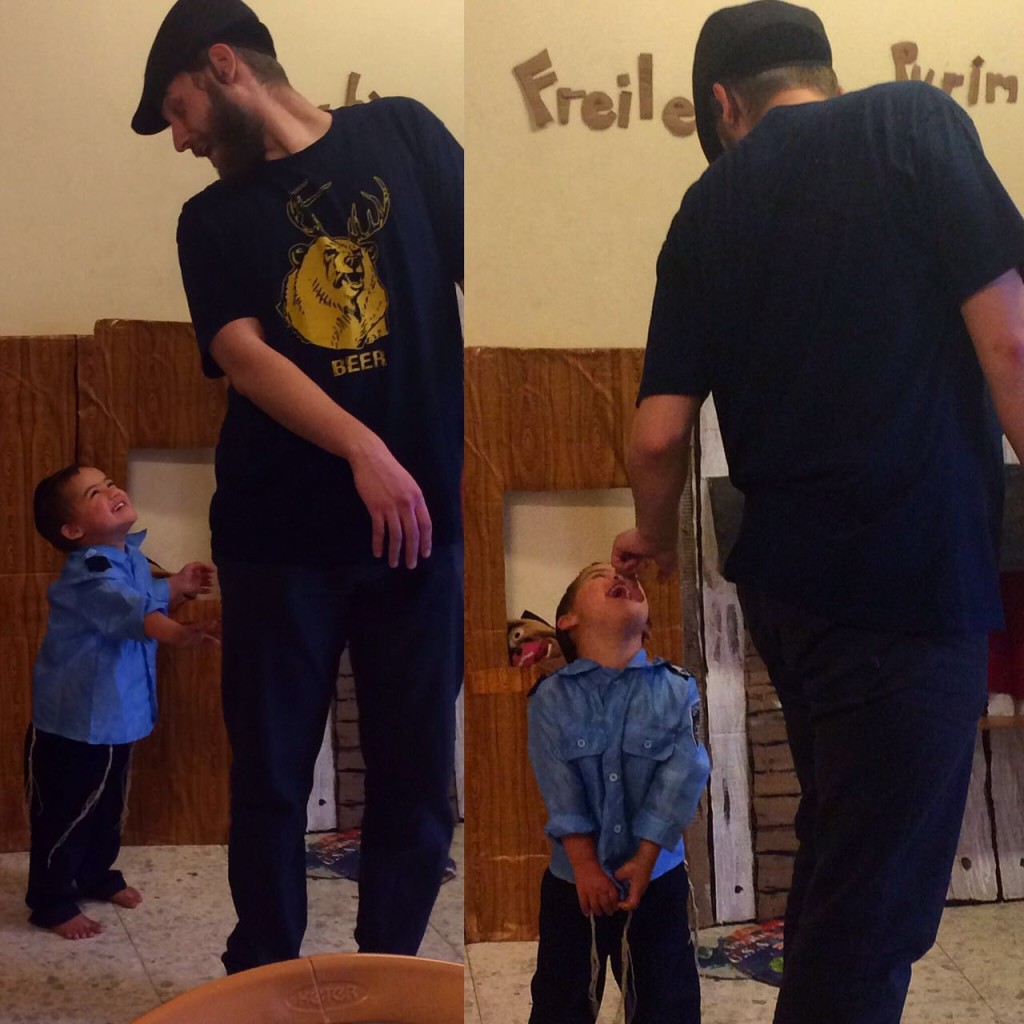
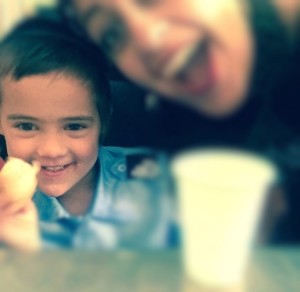
Naturally the menu was cowboy themed, and dd added labels to the ‘grub’ buffet table to connect it to the Suessian theme. We had: fresh rolls, cornbread, chicken wings, franks in blanks (‘Go, hotdogs, go!’), mini triangle borekas (‘There’s a wocket in my pocket’), fresh salad, coleslaw, a veggie platter (‘truffula sticks’), roasted tomato dip and chummus.

Dessert: banana bread, rainbow cake, red devil cupcakes with blue frosting, brownies (cowpies :)), hamantaschen and popcorn. (In case you’re wondering, everything was homemade except the dips. )
Ds22 surprised us by stopping in for fifteen minutes right after we ended our meal. He had last minute plans that brought him to our area for a very short time. When I hugged him and told him how happy we were that he was able to be there, he told me he’s been to a number of homes in the last two weeks (he’s been helping to fundraise for his yeshiva with friends) and there have been a lot of homes with nice atmospheres. Some have been more exciting than ours, but, he said, our home had the nicest atmosphere of them all.
Of course he’s biased because it’s his home and family, but still, you can imagine it was nice to hear that!
If you’d like to explore ways to build your family unity or any other concern related to your family, be in touch via email at avivahwerner@yahoo.com to set up a complimentary 20 minute consultation. Let’s talk about how I can support you in creating the home environment you want!
Avivah
